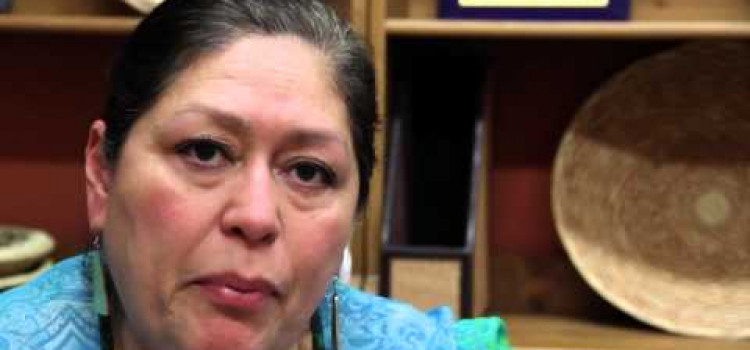

Junipero Serra founded the first California mission in 1769, forever changing the histories of Native American people.
Six years after he founded the San Carlos Borromeo de Carmelo Mission in San Diego, 800 Natives stormed the mission and set it on fire. And now, in 2015, the fight still isn’t over.
After Pope Francis announced his plan to canonize Serra in mid-January, many local Native Americans have voiced opposition to naming the Spanish Franciscan as a saint.
“Someone who caused untold misery and damage to people should not receive such an honor,” said Mary Hibbard, who is part Choctaw, a tribe native to Oklahoma, and has lived in Long Beach for about 40 years.
Long Beach is home to 15,981 people of Native American and Alaskan Native background, according to the 2009-2013 American Community Survey.
In 1769, Serra, accompanied by Spanish soldiers, followed orders to expand missions to Alta California and convert the Native populations. Serra would help establish nine of the 21 missions stretching from San Diego to San Francisco.
The Native population was estimated to be around 300,000 but was cut in half by 1848 due to disease and dislocation. American Indian Studies Professor Deborah Sanchez said that what took place at the missions amounted to the first stages of genocide.
Natives were forcefully separated from families, endured whipping and hard labor at the missions, Sanchez said.
“They call (Serra) the evangelizer of the west. That has a very negative meaning to me because of everything that was lost,” Sanchez said.
The missions’ history is personal for Sanchez, who is part Chumash, a tribe native to the California coast. She has a grandmother buried at Mission Buenaventura and another buried at Mission San Fernando. Her great aunt Maria Agueda Ortega died from small pox at La Purisima Mission.
“It seems like it’s long ago but it’s not,” Sanchez said.
Native Americans staged revolts at missions throughout the 18th and 19th centuries to protest mistreatment. In 1785, a 24-year-old Native woman named Toypurina led a rebellion at the nearby San Gabriel Mission. The Chumash Revolt of 1824 occurred at three missions: Mission Santa Barbara, Mission Santa Ynez, and La Purisima.
Besides losing language and culture, Natives said that the consequences of past atrocities persist today.
“We’re seeing the results of (dislocation) today in the more dysfunction families and the high drug and alcoholic rate,” Hibbard said. “You lose full generations of people. You don’t know how to be a parent, you don’t know how to do life, you don’t think you’re worth anything.”
Although the Choctaw are native to Oklahoma, Hibbard sees solidarity with California tribes. “I connect it to the forced march that my ancestors were on from Mississippi,” Hibbard said. “People have suffered immeasurably because of it.”
Hibbard helps put together a monthly gathering of Native Americans at Bethany Church in Long Beach called The Unbroken Circle. During a recent gathering, many attendees said they disagreed with the pope’s decision.
“I think it’s horribly tragic,” said Bryan Brightcloud, who is full Apache and helped started the monthly circle. “I think they really made a mistake.”
Years ago, Brightcloud remembers, he went to a Native American gathering at a mission. As the group stood in front of a statue of Serra, he recalls, they said to each other, “We’d just like to tear that statue down, because our ancestors have such bad memories of that man.”
The pope’s decision to elevate Serra to sainthood has also created conflict among Catholic Native Americans. Sanchez’s aunt, also Chumash, is a director of religious education. “She said, ‘I don’t know what the pope is doing’… She’s very upset about it because she admires the pope and she worked in the Catholic Church for so long,” Sanchez said.
Sanchez called on Native Americans to voice their concerns to their parishes. “Look at other people that are worthy of this title of sainthood,” she said. “If people get together on this, I think that the pope would look at what he’s proposing.”
